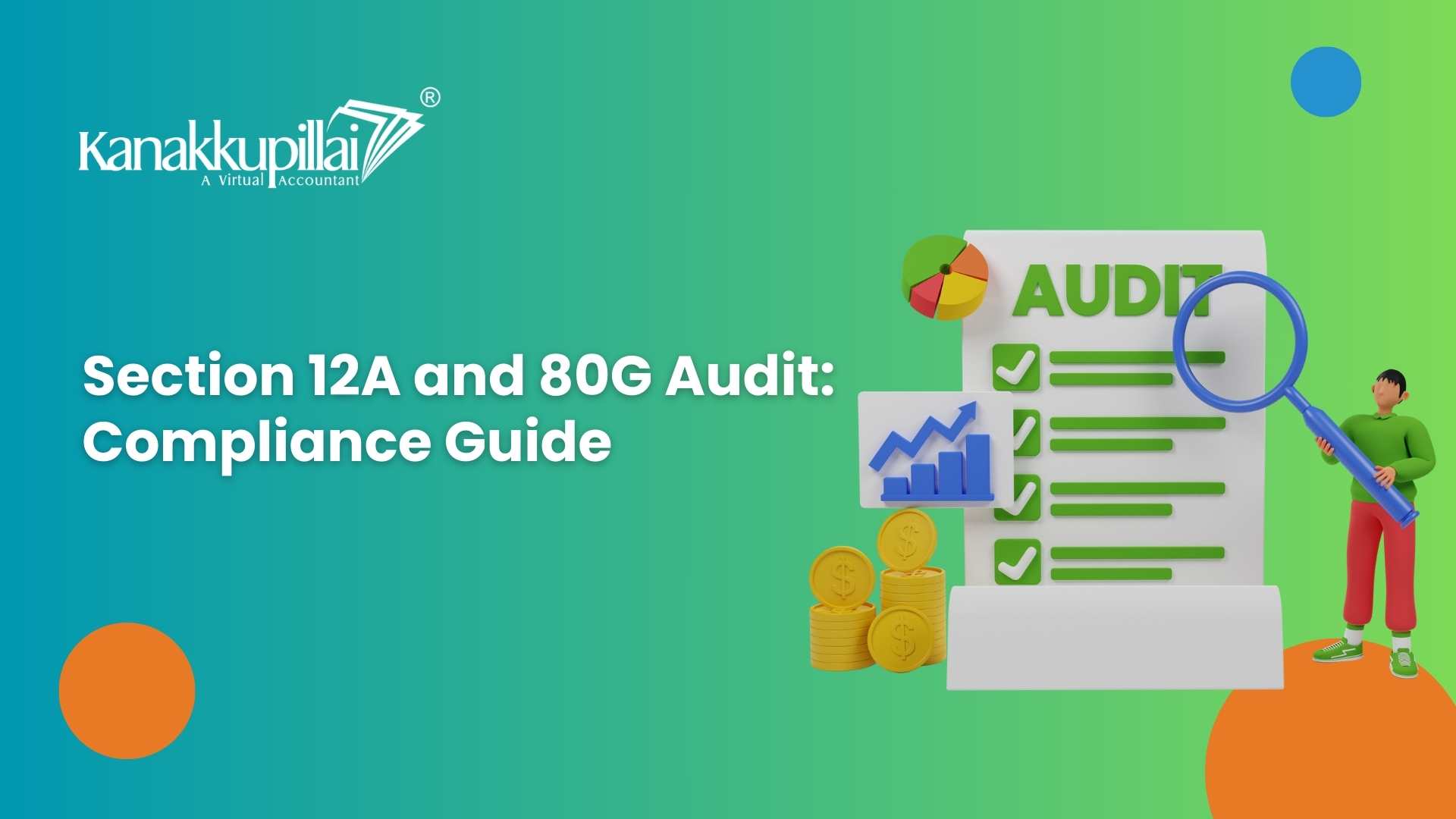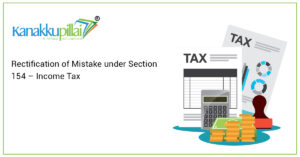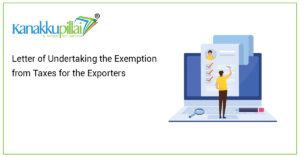![]()
Charity work requires a high level of empathy and trust. Thus, fiscal restraint is essential. The public and its supporters will appreciate a nonprofit more if it undergoes regular audits. These audits instil confidence that monetary resources are to emphasize the importance of fiscal restraint and audits for nonprofit organizations. They are being managed accountable since they conduct in-depth assessments of the processes already in place and present the results of those analyses.
Establishing and upholding a respectable reputation is one of the most essential factors in the expansion of any company. Those who donate the money want some verification that it is being put to good use. A nonprofit’s dedication to openness and accountability in its financial transactions is highlighted by an audit conducted by Sections 12A and 80G. An audit is an in-depth investigation into a company’s financial records, during which auditors search for indicators of wrongdoing, such as signs of fraud or other inconsistencies. This scrutiny is not an impediment but rather evidence of the organization’s dedication to its mission.
The Process of Section 12A
Section 12A of the Income Tax Act provides tax exemptions for charitable organizations. Those groups that are eligible under this provision may apply for registration. A business’s records, operations, and legal compliance are examined closely during an audit.
A tax-exempt organization can begin having its status recognized by the government by filing for 12A registration. Auditors look into nonprofits to ensure they meet their missions and comply with the legal meaning of “charitable purpose.” This audit can verify the organization’s honest intentions and the abuse of tax-exempt status.
Compliance with Section 80G of the Code
Donations to qualified organizations are eligible for a tax credit under Section 80G of the Internal Revenue Code. A thorough evaluation demonstrating compliance with all applicable legal and financial criteria is a must for qualifying.
Any nonprofit organization would do well to strive for and get 80G accreditation. It is evidence that the company is financially stable and satisfies all the conditions outlined in the Income Tax Act. Auditors’ meticulous scrutiny of financial records ensures that every donated rupee was allocated correctly and spent. Donors are more likely to support an organization with approved 80G status due to the multiplier impact and the convenience of tax deductions.
Specifications for Sections 12A and 80G Audits
The first step in an audit is gathering financial accounts, transaction records, and applicable legal documents. Once auditors have this documentation, they will have all they need to evaluate the company’s finances thoroughly.
Find a specialist who has already managed audits for firms comparable to yours. Because of their knowledge and experience, they can provide a sound evaluation.
- Drawing up a detailed audit strategy is like mapping out an adventure. A well-thought-out plan may illuminate the audit’s goals, scope, and approach.
- The company’s books are scrutinized in “Financial Scrutiny.” Auditors analyze income, expenditures, assets, and liabilities in-depth to ensure accuracy and conformity.
- The audit isn’t just a look at the numbers; it also checks for policy violations. Auditors look through the books to ensure everything is in order and the organization does its mission as intended.
- After an audit, the auditors write a report with all the data they acquired. What was seen, what was advised, and where things may be improved are all laid forth in this report.
- When the audit is finished, the report is submitted to the relevant teams for follow-up. By responding quickly and thoroughly to questions and requests for explanation, you can demonstrate that you value direct communication and individual responsibility.
By adhering to these protocols during an audit, nonprofits can ensure that their financial operations align with applicable laws and ethical norms.
Benefiting as Much as Possible from Tax Write-Offs and Gifts
Obtaining Favourable Tax Treatment
Passing a 12A or 80G audit demonstrates accountability and has significant financial benefits. Donations to charities with 80G status are tax deductible, making them more attractive to potential donors. In return, the charities receive more public support and funding.
Both organizations and donors can save money by taking advantage of the tax breaks offered by obtaining a 12A or 80G registration. Donors are encouraged to support nonprofits granted 80G status to reduce their tax liability. This indicates that nonprofit organizations can boost the amount of money they raise by pitching to a more diverse audience.
Eliminating or Minimizing the Most Common Types of Errors
It’s a Lie That Audits Are Very Tiresome
Audits are time-consuming, but their insights are invaluable for building credibility. There is a widespread misconception that audits are pointless procedures. However, it downplays the magnitude of their actual contributions. The strengths and weaknesses of a company’s finances, as well as the overall picture, might be revealed in an audit. Financial mismanagement may be prevented, in part, thanks to audits. An audit is vital to competent financial management since it helps avoid potentially dangerous circumstances.
The Myth of the Exempt Non-Governmental Organization
Audits are essential for organizations of any size seeking to maintain their tax-exempt status. It is hazardous for NGOs of all sizes to assume they are exempt from audit requirements. Any organization seeking 12A or 80G accreditation must be audited regardless of size. Because of this, every one may see the company’s financial dealings, irrespective of the business’s size. Smaller non-governmental organizations (NGOs) should view audits not as a hindrance but as a chance to enhance their societal reputation and get further funding.
The myth is you should not fear Accountants.
Auditors are essential for financial transparency.
A widespread misleading notion is that auditors want to get you in trouble. Auditors are crucial to financial statement credibility. Because of their lack of bias, they are viewed as objective economic commentators. Auditors are essential because of the data, problems, and possibilities they reveal to businesses. Collaboration in financial governance can be enhanced if auditors are seen as allies rather than foes.
Benefits of a 12A and 80G Review
In addition to guaranteeing conformity, audits under Sections 12A and 80G provide various benefits. By demonstrating the organization’s monetary stability, an audit like this inspires trust in donors’ hearts, old and new.
Requirements for Reporting
Nonprofit organizations that have applied for both 12A and 80G status must provide yearly financial statements as part of their required reporting. This move will increase the openness and accountability of the company’s financial operations.
Adjusting to New Features and Improvements
Changes in tax law are a constant fact of life. Nonprofits relying on Section 12A and Section 80G for tax exemptions must stay abreast of any changes made.
Problems and Possible Solutions
Organizations may need help with audits and regulations despite the many benefits of 12A and 80G. Keeping meticulous records, practising frugality, and consulting experts as necessary are all viable approaches to these problems.
Eligibility for 12A and 80G Purposes
If they qualify, nonprofits can register under Sections 12A and 80G of the Internal Revenue Code. These criteria were set up to aid in allocating funding to deserving organizations in the community.
Conclusion
Fiscal responsibility is a fundamental premise in the intricate structure of nonprofit board leadership. Sections 12A and 80G detail auditing techniques that can improve an organization’s openness, credibility, and productivity.





